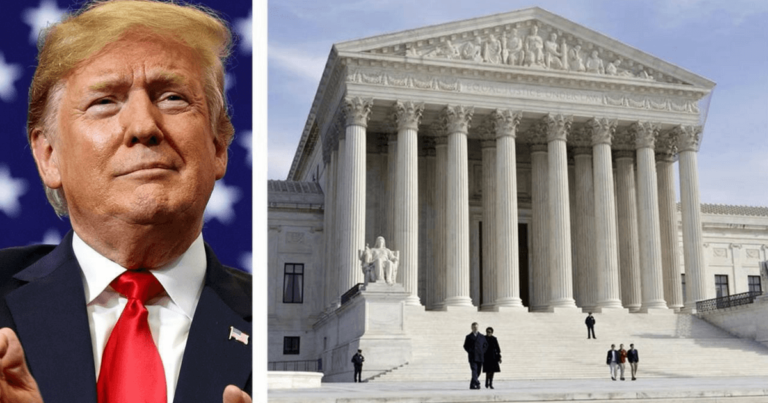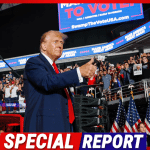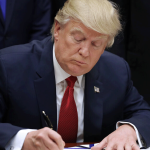
Like a general fighting on multiple fronts, President Trump finds himself battling not just foreign adversaries and domestic opposition, but an increasingly activist judiciary determined to obstruct his America First agenda at every turn. The pattern has become as predictable as it is troubling: Trump announces a policy to protect American interests, and within days, black-robed bureaucrats emerge from their marble temples to declare it unconstitutional.
This judicial resistance represents more than mere legal disagreement—it’s a fundamental challenge to the concept of executive authority itself. And let’s be honest—this isn’t coincidence. Throughout his second term, Trump has watched court after court chip away at presidential prerogatives that previous administrations took for granted. From immigration enforcement to regulatory reform, the message from the federal bench has been clear: we’ll decide what’s best for America, not the elected president.
The latest salvo in this constitutional war centers on one of Trump’s signature policies—tariffs designed to level the playing field for American workers and rebuild our manufacturing base. After months of successful trade negotiations and tariff implementations that were actually strengthening America’s position globally, suddenly the courts discovered constitutional problems that somehow escaped their notice before. But this time, the president isn’t taking the judicial activism lying down.
When the U.S. Court of International Trade struck down his reciprocal tariff program Wednesday night, Trump unleashed a blistering response that cut to the heart of the matter. Taking to Truth Social with characteristic directness, the president didn’t mince words about what he sees as a transparently political decision designed to undermine American sovereignty.
From Trump’s Truth Social post:
“The ruling by the U.S. Court of International Trade is so wrong, and so political! Hopefully, the Supreme Court will reverse this horrible, Country threatening decision, QUICKLY and DECISIVELY.”
But Trump’s fury extended beyond the immediate ruling to target what many conservatives have long suspected—that even supposedly friendly institutions within the conservative legal movement have been compromised. In a stunning rebuke, Trump took direct aim at Leonard Leo and the Federalist Society, organizations he had previously relied upon for judicial recommendations. Now that’s what I call draining the swamp from the inside out.
The president’s criticism of Leo as a “real sleazebag” who “probably hates America” sent shockwaves through conservative legal circles. For years, the Federalist Society has positioned itself as the guardian of constitutional originalism, yet Trump’s experience suggests something far more troubling: an institution more concerned with maintaining its own influence than advancing conservative principles.
White House Press Secretary Karoline Leavitt captured the administration’s frustration perfectly, declaring that the judges had “brazenly abused their judicial power to usurp the authority of President Trump.” Her assessment that these judicial interventions threaten to “undermine the credibility of the United States on the world stage” highlights the real-world consequences of this legal warfare.
The Constitutional Showdown Ahead
The administration isn’t backing down from this fight. With plans to potentially petition the Supreme Court as early as Friday for emergency relief, Trump is forcing a constitutional showdown that could define presidential authority for generations. Smart move? Absolutely. Deputy Chief of Staff Stephen Miller’s characterization of the situation as a “judicial coup” may sound hyperbolic to some, but it accurately captures what’s at stake.
The technical details matter here. The Court of International Trade claimed Trump exceeded his authority under the International Emergency Economic Powers Act, essentially arguing that protecting American economic interests doesn’t constitute a genuine emergency. This reasoning would have been laughable to previous generations of Americans who understood that economic warfare poses just as real a threat as military conflict.
Meanwhile, the Federal Circuit Court’s decision to temporarily stay the lower court’s ruling provides a glimmer of hope that higher courts may show more respect for presidential prerogatives. The administration’s argument that the ruling would “destroy” ongoing trade negotiations with China demonstrates the practical chaos that judicial micromanagement creates. Trump’s chances at the Supreme Court? Given the clear constitutional authority presidents have historically held over trade policy, the odds look surprisingly good.
When Courts Become Political Weapons
What we’re witnessing goes far beyond normal legal process—it’s the weaponization of the federal judiciary against conservative governance. These aren’t neutral arbiters applying law to facts; they’re political actors advancing a globalist agenda that prioritizes international opinion over American interests.
If you’re wondering how deep the swamp really goes, wonder no more. The timing is particularly telling. Just as Trump begins delivering on his campaign promises to rebuild American manufacturing and restore trade balance, suddenly judges discover constitutional problems that somehow escaped notice during previous administrations’ far more dubious exercises of executive power.
This pattern reveals the true nature of the resistance Trump faces. It’s not principled constitutional objection—it’s institutional sabotage by a deep state that includes elements of the federal judiciary. The fact that even supposedly conservative legal organizations have proven unreliable only underscores how deeply the swamp extends into every corner of the Washington establishment.
Here’s what this means for you: For conservative Americans who voted for Trump precisely because they wanted someone willing to fight these entrenched interests, this latest battle should serve as both vindication and warning. Vindication that their instincts about institutional corruption were correct, and warning that the fight for constitutional governance is far from over.
The Supreme Court now has an opportunity to restore sanity to this process and reaffirm that elections have consequences. If they fail to do so quickly and decisively, they’ll be sending a message that no conservative president—no matter how overwhelming their mandate—can govern effectively in modern America. That’s a precedent no patriotic American should accept.
Key Takeaways:
• Federal courts are weaponizing judicial review to obstruct Trump’s America First agenda.
• Trump criticizes Federalist Society’s Leonard Leo as a compromised establishment figure.
• Supreme Court emergency petition could define presidential authority for generations.
• Conservative legal institutions have proven unreliable allies in constitutional governance battles.


